Starlink and OneWeb reach spectrum coordination plan
Tuesday, 14 June 2022 18:24
SpaceX and OneWeb said June 13 they have reached a spectrum coordination plan that would enable their current and second-generation broadband megaconstellations to coexist.
The post Starlink and OneWeb reach spectrum coordination plan appeared first on SpaceNews.
Aerospacelab to build “megafactory” in Belgium
Tuesday, 14 June 2022 17:00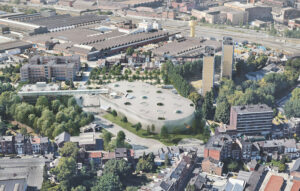
Belgian startup Aerospacelab announced plans June 14 to establish a new satellite "megafactory” large enough to produce 500 satellites annually.
The post Aerospacelab to build “megafactory” in Belgium appeared first on SpaceNews.
Sierra Space to start astronaut training program
Tuesday, 14 June 2022 16:32
Sierra Space is creating an astronaut training program led by a company executive and former NASA astronaut as another step in developing a crewed version of its Dream Chaser vehicle and a commercial space station.
Explosion at Chinese space launch center revealed by satellite imagery
Tuesday, 14 June 2022 16:31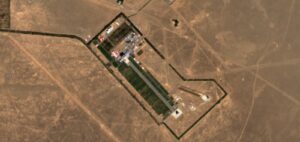
An explosion hit rocket facilities at China’s Jiuquan Satellite Launch Center in October 2021, commercial satellite imagery shows.
ESA mission control builds UK connections
Tuesday, 14 June 2022 16:13
The ongoing collaboration between the UK and ESA’s European Space Operations Centre (ESOC) in Germany is playing a key role in the success of numerous pioneering space activities.
China's lunar lander finds evidence of native water on moon
Tuesday, 14 June 2022 15:46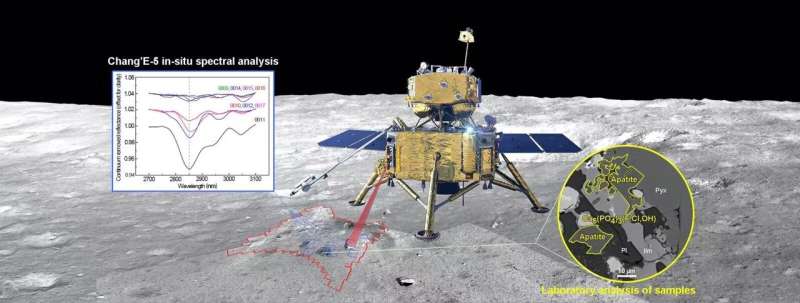
Samples from the Moon's Oceanus Procellarum, an ancient mare basalt whose name translates to "Ocean of Storms," may be able to help determine the source of lunar water.
China's lunar lander Chang'E-5 delivered the first real-time, on-site definitive confirmation of water signal in the basalt's rocks and soil via on-board spectral analysis in 2020. The finding was validated through laboratory analysis of samples the lander returned in 2021.
NASA Invites Media, Public to View Webb Telescope’s First Images
Tuesday, 14 June 2022 14:05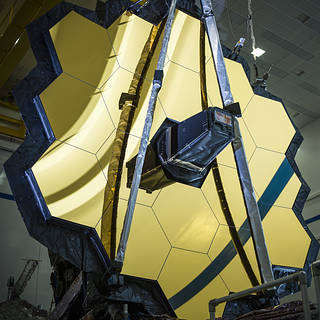 NASA, in partnership with ESA (European Space Agency) and CSA (Canadian Space Agency), will release the James Webb Space Telescope’s first full-color images and spectroscopic data during a televised broadcast beginning at 10:30 a.m. EDT on Tuesday, July 12, from NASA’s Goddard Space Flight Center in Greenbelt, Maryland.
NASA, in partnership with ESA (European Space Agency) and CSA (Canadian Space Agency), will release the James Webb Space Telescope’s first full-color images and spectroscopic data during a televised broadcast beginning at 10:30 a.m. EDT on Tuesday, July 12, from NASA’s Goddard Space Flight Center in Greenbelt, Maryland. Going GaN: novel chips powering space missions
Tuesday, 14 June 2022 13:03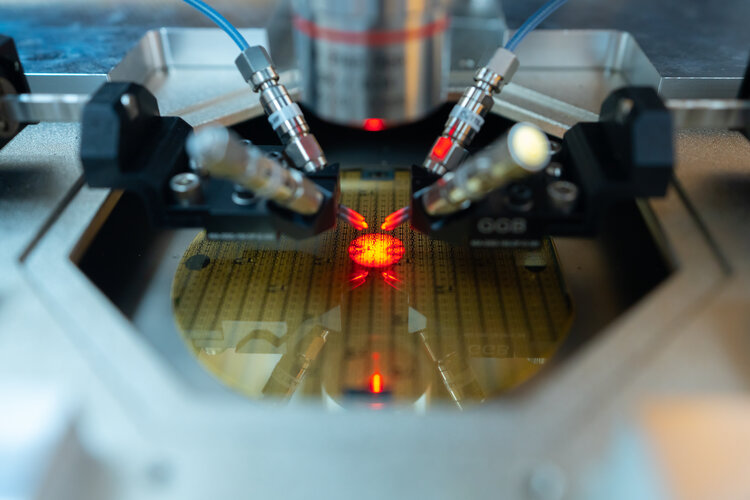
Some of ESA’s most ambitious future missions for telecommunications and Earth observation have only become possible because of a switch to a novel high-power and high-temperature capable semiconductor – sometimes termed the most promising material since silicon. ESA laboratory testing has confirmed the performance of key European-made Gallium Nitride components.
Northrop Grumman demonstrates Mynaric laser terminals for military constellation
Tuesday, 14 June 2022 12:30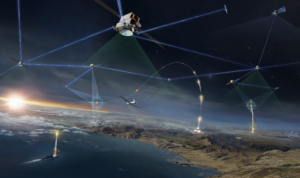
Using Mynaric terminals,, Northrop Grumman conducted a ground demonstration of optical communications for the U.S. Space Development Agency's low Earth orbit constellation
The post Northrop Grumman demonstrates Mynaric laser terminals for military constellation appeared first on SpaceNews.
Watch the ESA Council information session
Tuesday, 14 June 2022 12:30
The media information session following the 308th ESA Council will be streamed on 15 June from 12:40 to 13:15 CEST at esawebtv.esa.int. Join us to hear more about the cooperation between ESA and NASA.
Airbus-built Earth observation satellite SARah-1 ready for launch
Tuesday, 14 June 2022 11:35 The Airbus-built "SARah-1" Earth observation satellite, under subcontract to OHB System AG, has been transported from Friedrichshafen, Germany, to Vandenberg, California, USA, and is currently being prepared for launch in June 2022 and subsequent operation by Airbus in space.
SARah is a new operational reconnaissance system consisting of several satellites and a ground segment, which was d
The Airbus-built "SARah-1" Earth observation satellite, under subcontract to OHB System AG, has been transported from Friedrichshafen, Germany, to Vandenberg, California, USA, and is currently being prepared for launch in June 2022 and subsequent operation by Airbus in space.
SARah is a new operational reconnaissance system consisting of several satellites and a ground segment, which was d ReOrbit and VENG signs agreement for satellite manufacturing
Tuesday, 14 June 2022 11:35 ReOrbit and VENG, an Argentinian-based company, signed an agreement to manufacture satellites in Argentina to serve the Latin America market. The directors of both organisations met at the Argentina Space Centre located in Cordoba Province, Argentina, to visit the VENG's AI&T facilities, discuss future collaborations and finally sign a Memorandum of Understanding.
VENG, the main contractor
ReOrbit and VENG, an Argentinian-based company, signed an agreement to manufacture satellites in Argentina to serve the Latin America market. The directors of both organisations met at the Argentina Space Centre located in Cordoba Province, Argentina, to visit the VENG's AI&T facilities, discuss future collaborations and finally sign a Memorandum of Understanding.
VENG, the main contractor Unravelling the mysteries of clouds
Tuesday, 14 June 2022 11:35 Clouds and aerosols are still considered the great unknowns in understanding our climate. With the EarthCARE Earth observation satellite, Airbus has made the finishing touches to the crucial 'key' that will unlock the mysteries of clouds, helping make more accurate atmospheric models and climate forecasts.
The 2.3-tonne satellite is now being transported from the Airbus site in Friedrichsh
Clouds and aerosols are still considered the great unknowns in understanding our climate. With the EarthCARE Earth observation satellite, Airbus has made the finishing touches to the crucial 'key' that will unlock the mysteries of clouds, helping make more accurate atmospheric models and climate forecasts.
The 2.3-tonne satellite is now being transported from the Airbus site in Friedrichsh Isar Aerospace and EXOTRAIL partner on cloud-based simulation software ExoOPSTM
Tuesday, 14 June 2022 11:35 The launch service provider Isar Aerospace signs in as the latest ExoOPSTM - Mission Design customer, Exotrail's Software-as-a-Service (SaaS) solution dedicated to space mission simulation and analysis.
Isar Aerospace, the leading European launch service provider focusing on small and medium satellite deployment, will use ExoOPSTM - Mission Design to answer the thriving demand for flexible
The launch service provider Isar Aerospace signs in as the latest ExoOPSTM - Mission Design customer, Exotrail's Software-as-a-Service (SaaS) solution dedicated to space mission simulation and analysis.
Isar Aerospace, the leading European launch service provider focusing on small and medium satellite deployment, will use ExoOPSTM - Mission Design to answer the thriving demand for flexible Studying grassland from space
Tuesday, 14 June 2022 11:35 The Sentinel-2 space mission began with the launch of Earth observation satellite Sentinel-2A in June 2015, and Sentinel-2B was launched in March 2017. Since then, these two satellites have been orbiting in space at an altitude of nearly 800 kilometres and, as part of ESA's Copernicus programme, providing data for, e.g., climate protection and land monitoring.
very three to five days, they
The Sentinel-2 space mission began with the launch of Earth observation satellite Sentinel-2A in June 2015, and Sentinel-2B was launched in March 2017. Since then, these two satellites have been orbiting in space at an altitude of nearly 800 kilometres and, as part of ESA's Copernicus programme, providing data for, e.g., climate protection and land monitoring.
very three to five days, they 